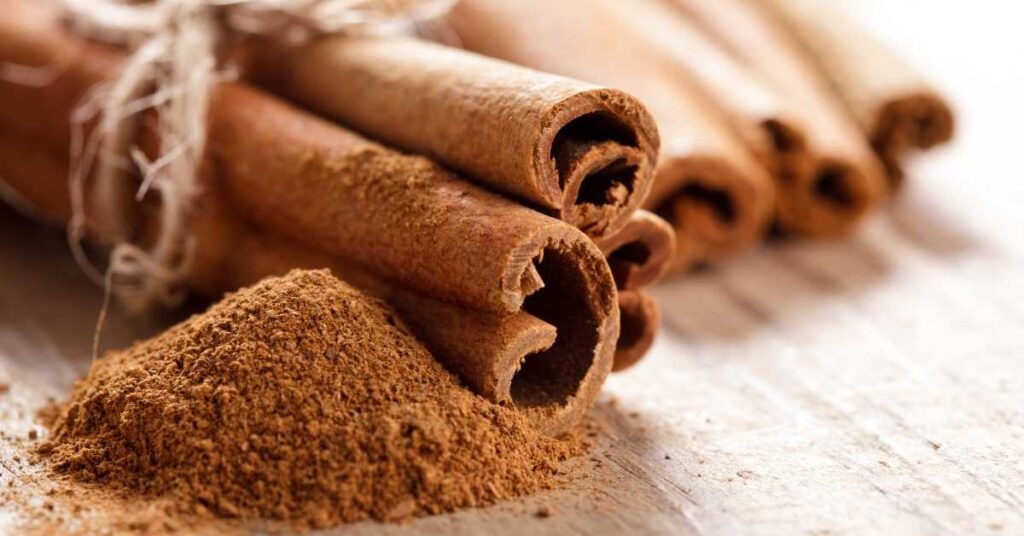Cinnamon is a spice made from the inner bark of the cinnamon tree. It has a long history of use in both culinary and medicinal applications. Cinnamon is used in a variety of dishes, from sweet desserts to savory main courses. It is also a popular ingredient in many traditional medicines. Cinnamon extract is known to have antibacterial and antifungal properties. It is also used as an immune system booster, blood sugar regulator, and anti-inflammatory agent. Cinnamon essential oil is used in aromatherapy to promote relaxation and reduce stress levels. There are two main types of cinnamon – Ceylon and cassia. Ceylon cinnamon is considered to be the true cinnamon, while cassia cinnamon is a less expensive substitute. Both types of cinnamon provide numerous health benefits.
The burning sensation you experience when you eat cinnamon is caused by a chemical called cinnamaldehyde. This compound is responsible for the characteristic flavor and smell of cinnamon, but it also has a strongly irritating effect on mucous membranes.
When cinnamaldehyde comes into contact with your tongue, it causes the release of a neurotransmitter called substance P. Substance P is responsible for transmitting pain signals to the brain, which is why you feel a burning sensation when you eat cinnamon. Cinnamon isn’t the only food that can cause this reaction. Other spicy foods, such as chili peppers, can also trigger the release of the substance P. However, cinnamon is particularly effective at causing this response because it contains a high concentration of cinnamaldehyde. The good news is that the burning sensation caused by cinnamon is only temporary. Once the cinnamaldehyde has been cleared from your mouth, the pain will go away. In the meantime, you can try drinking some milk or eating something sweet to help neutralize the burning sensation.
Why do you feel like cinnamon burns your tongue?
There are a few possible explanations for why someone might feel like cinnamon burns their tongue.
One possibility is that the person is sensitive to the spices in cinnamon. This could cause a burning sensation on the tongue, as well as other symptoms like itchiness or redness.
Another possibility is that the person has a medical condition that causes them to be sensitive to heat. This could mean that they are more likely to feel a burning sensation when they eat hot foods.
Finally, it is also possible that the person has food allergies that make them react to cinnamon. This could cause an allergic reaction which might include swelling, difficulty breathing, or a rash.
If someone experiences these symptoms after eating cinnamon, it is important to see a doctor in order to rule out any serious medical conditions.
How to neutralize the burning sensation?
If you’ve ever accidentally eaten a large amount of cinnamon or something that was too spicy, then you know how unpleasant the burning sensation can be. It can seem like the spice is never going to go away, and your mouth can feel like it’s on fire.
Luckily, there are a few things you can do to neutralize the burning sensation.
One option is to drink some milk, which will help to soothe your mouth and throat.
You can also try eating something sweet, like a piece of cake or a cookie. This will help to counteract the spicy flavor of cinnamon.
If you’re still feeling uncomfortable, you can try rinsing your mouth with water or sucking on ice chips. These methods should help to relieve the burning sensation and make you feel more comfortable.
How to counteract the flavour of cinnamon in dishes?
If you’ve added too much cinnamon to a dish, there are a few things you can do to counteract the flavor.
One option is to add more of another ingredient, such as sugar or salt. This will help to balance out the flavor of the dish.
Another option is to add a little bit of sweetness to your dish. This can be done by adding some sugar, honey, or fruit.
You can also try adding other spices to your dish, such as ginger or nutmeg. These spices will help to balance out the flavor of cinnamon and make your dish more palatable.
You can also try adding acidic ingredients, such as lemon juice or vinegar. These will help to cut through the sweetness of the cinnamon and make the dish more balanced.
Finally, if all else fails, you can always add more of the other ingredients in the dish. This will help to dilute the flavor of the cinnamon and make it less overwhelming.
If you’re still not happy with the flavor of your dish, you can always add more of the other ingredients. This will help to dilute the flavor of cinnamon and make it more tolerable.
The dangers of consuming too much cinnamon
While cinnamon is generally safe to consume, there are some risks associated with eating too much of this spice. One potential danger of consuming large amounts of cinnamon is that it can irritate the lining of your stomach. This can lead to indigestion, nausea, and vomiting. Cinnamon can also increase your risk of developing ulcers. If you have a history of stomach problems, you should avoid consuming large amounts of cinnamon.
Another potential danger of consuming too much cinnamon is that it can interact with certain medications. Cinnamon can make it harder for your body to absorb insulin, which can be dangerous for people with diabetes. Cinnamon can also thin your blood, which can increase the risk of bleeding and bruising. If you are taking any medication, you should talk to your doctor before adding cinnamon to your diet.
Cinnamon substitutes you can use instead
If you’re looking for a way to add flavor to your food without the burning sensation, there are a few substitutes you can use. One option is to try other spices, such as ginger or nutmeg. You can also use sweeteners, such as honey or sugar. These substitutes will provide some sweetness to your food without the burning sensation.
Another option is to use Ceylon cinnamon instead of cassia cinnamon. Ceylon cinnamon is considered to be the true cinnamon, and it has a milder flavor than cassia cinnamon. This type of cinnamon is less likely to cause the burning sensation. If you’re unable to find Ceylon cinnamon, you can also try using a smaller amount of cassia cinnamon. This will help to reduce the burning sensation while still providing flavor to your food.
How to store cinnamon for maximum freshness?
Cinnamon will last for about six months if it is stored properly. This spice should be kept in a cool, dry place, such as a pantry or cupboard. Once you have opened the cinnamon, it is best to transfer it to an airtight container. This will help to keep the flavor and aroma of the cinnamon fresh for longer.
Conclusion
Cinnamon is a common spice that people use to add flavor to food. However, some people may find that cinnamon burns their tongue. There are several possible explanations for this. One possibility is that the person is sensitive to the spices in cinnamon. Another possibility is that the person has a medical condition that causes them to be sensitive to heat. Finally, it is also possible that the person has food allergies that make them react to cinnamon. If you find that cinnamon burns your tongue, it is best to consult with a doctor or allergist to determine the cause.





